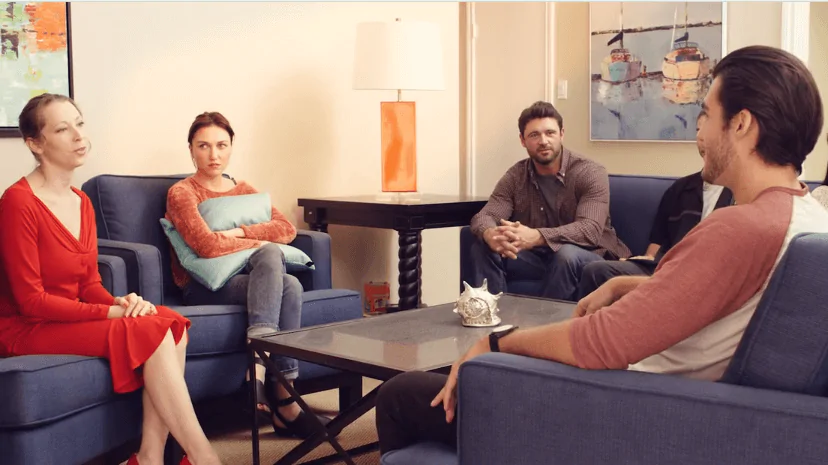24/7 Helpline:
(866) 899-111424/7 Helpline:
(866) 899-1114
Learn more about Partial Hospitalization Program centers in Johnson County
Partial Hospitalization Program in Other Counties

Counseling Associates
Counseling Associates provides outpatient behavioral health services to children and adults. Service...

Southeast Mental Health Services
Southeast Mental Health Services is a private rehab located in Lamar, Colorado. Southeast Mental Hea...

Crossroads Turning Points – Drug Free Communities
Crossroads Turning Points is a private rehab located in Lamar, CO. Crossroads Turning Points special...

Crossroads Turning Points
Crossroads Turning Points is a private rehab located in Lamar, Colorado. Crossroads Turning Points s...

Personal Counseling Services
Personal Counseling Services is an outpatient behavioral health treatment facility located in Clarks...

Avenues Recovery Center at Louisville
A unique community-based detox and residential style extended care program that’s truly customized t...

Sunrise Recovery
Sunrise Recovery specializes in the treatment of Drugs and Alcohol detox. We focus on wide varieties...

Oxford House Abbeywood
Oxford House Abbeywood, located in Clarksville, Indiana, is a democratically run, self-supporting, a...

Centerstone – Harriet Cohn Center
Found in Clarksville, Tennessee, Centerstone – Harriet Cohn Center is a private addiction treatment ...

Ross Center
Ross Center - Raleigh Court offers outpatient treatment for individuals with alcohol and/or substanc...

Buffalo Valley
Buffalo Valley offers alcohol and drug addiction treatment and mental health support for adults in C...

SperoHealth
SperoHealth is a private rehab located in Clarksville, Tennessee. SperoHealth specializes in the tre...

Birch Tree Communities
Birch Tree Communities is a private rehab located in Clarksville, Arkansas. Birch Tree Communities s...

Perspectives Behavioral Health
Perspectives Behavioral Health is a private rehab located in Clarksville, Arkansas. Perspectives Beh...

Preferred Family Healthcare
Preferred Family Healthcare - East Main Street offers outpatient services for individuals with a men...

Ozark Center – New Directions
Ozark Center – New Directions is a private rehab located in Lamar, Missouri. Ozark Center – New Dire...

Health Connect America
Health Connect America is a private rehab located in Clarksville, Tennessee. Health Connect America ...

Bradford Health Services
Bradford Health Services - Dunbar Cave Road is a rehab center situated in Clarksville, Tennessee. Si...

Alcoholics Anonymous and Al – Anon
Alcoholics Anonymous and Al – Anon is a non-profit rehab located in Clarksville, Tennessee. Alcoholi...

Behavioral Healthcare Center
Behavioral Healthcare Center is a private rehab located in Clarksville, Tennessee. Behavioral Health...

Spero Health – Clarksville
Spero Health – Clarksville is a private rehab located in Clarksville, Tennessee. Spero Health – Clar...

Clarksville Family Guidance Center
Clarksville Family Guidance Center is a private rehab located in Clarksville, Tennessee. Clarksville...

Pastoral Counseling Center
Pastoral Counseling Center is a private rehab located in Clarksville, Tennessee. Pastoral Counseling...

East Texas Women’s Rehab
East Texas Women’s Rehab, in Clarksville, Texas, is a faith-based drug and alcohol rehab for adolesc...

































































































Other Insurance Options
Beacon

Carleon

GEHA

United Health Care

Cigna

Private insurance

Kaiser Permanente

Ambetter

Magellan

Sutter

Multiplan

Self-pay options

UMR

Optima

PHCS Network

MHNNet Behavioral Health

Horizon Healthcare Service

Medical Mutual of Ohio

Providence

Access to Recovery (ATR) Voucher